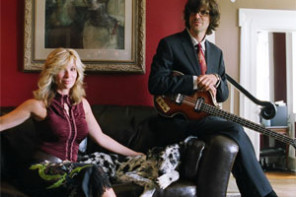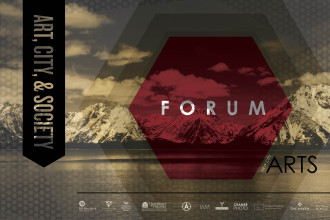Christian Congregational Music: Local and Global Perspectives
1-3 September 2011, Ripon College Cuddesdon, Oxford
Call for Papers
Christian congregational singing is a vital and vibrant dimension of church communities worldwide. It reflects, informs, and articulates local convictions and concerns as well as global flows of ideas and products. Congregational song can unify communities of faith across geographical and cultural boundaries, while simultaneously serving as a contested practice that communities use to inscribe, challenge, and negotiate identities. Many twenty-first century congregational song repertories, including British and American revival hymns, gospel music, and praise & worship music, are transnational genres that cross boundaries of region, nation, and denomination. The various meanings, uses, and influence of these congregational musics cannot be understood without an exploration of both the musics’ local roots and global routes.
This conference seeks to explore this multifaceted interaction between local and global dimensions of Christian congregational singing by drawing from perspectives across academic disciplines, including history, anthropology, sociology, ethnomusicology, and theology. In particular, the conference welcomes papers addressing or engaging with one or more of the following six themes:
(1) Performing Theology: Theologians and social scientists alike have noted that participating in music enables the bodily enactment of belief, sometimes causing situations in which official and ‘performed’ theologies differ. How have shifting musical practices in Christian congregations led to the challenging, rethinking, or reconstituting of belief? How do individual churches use music to negotiate broader theological discussions among their denominations or translocal Christian social imaginaries, such as evangelicalism and charismaticism?
(2) Practices of Hearing, Listening, and Audition: How do congregations and individuals hear and understand singing? How do they use it? How do new listening practices influence individual and group belief and behaviour? How is congregational music both shaped and informed by new auditory practices? How do religious communities shape the ways listening occurs? How do music and sound practices form religious soundscapes?
(3) Histories of Christian music: Accommodation, globalization, commercialization, and enculturation are common historiographical tropes used when discussing the development and spread of Christian congregational song repertories. In what ways should we nuance or interrogate these terms, as well as the specific origin narratives of Christian congregational music forms? How does conceiving congregational music as both local practice and global phenomenon influence how we write histories of congregational singing?
(4) Worship Wars Reconsidered: The designation “worship wars” has been used broadly to describe the heated debates over styles of music in congregational worship that took place in the latter quarter of the Twentieth Century. How have these disputes over congregational singing affected church musical practices on local and translocal levels? How has music been used in conflict and resolution? Are the wars over, or have the discourses merely shifted? How does musical style function in worship wars discourses, as lines between “sacred” and “secular” are constantly redrawn in the face of broader cultural and societal changes?
(5) Interplay of Identities: Congregational singing can create a sense not only a sense of religious identity, but also regional, national, ethnic, or denominational belonging. How do Christian congregations use music to create, challenge, or negotiate these modes of belonging? How do different Christian groups localise translocal styles of congregational music? How do groups use congregational music to transcend their local contexts and identify with larger Christian movements or publics?
(6) Religious Experience: What role does music play in informing, enabling, and interpreting religious experience? What relationship does music have to ecstatic expression, such as trance, prophecy, or glossolalia? How do these powerful experiences, in turn, inform the theology of worship?
Deadline for proposals: 4 April 2011.
The schedule for the three-day conference maintains a unique balance of presentations from invited speakers (listed below), traditional conference panel presentations, and roundtable discussions.
To submit a proposal for an individual paper or organized panel of three papers, please fill out the proposal form located at the conference website and submit it to Christian.Music.Conference@Ripon-Cuddesdon.ac.uk.
Notifications of acceptance will be sent by 29 April 2011, and conference registration will begin on 2 May 2011.
Conference organisers and conveners:
Revd Canon Prof Martyn Percy, Ripon College Cuddesdon, Oxford
Dr Carolyn Landau, King’s College London
Dr Monique Ingalls, Rutgers University
Tom Wagner, Royal Holloway, University of London
Mark Porter, St Aldates, Oxford
For all other details, please visit the conference website. For all programme enquiries, please contact Dr Carolyn Landau: carolyn.landau@kcl.ac.uk or Dr Monique Ingalls: monique.ingalls@gmail.com.






Thanks for posting this Transpositions. A fascinating look at how academia might examine congregational music in all its perspectives and forms.